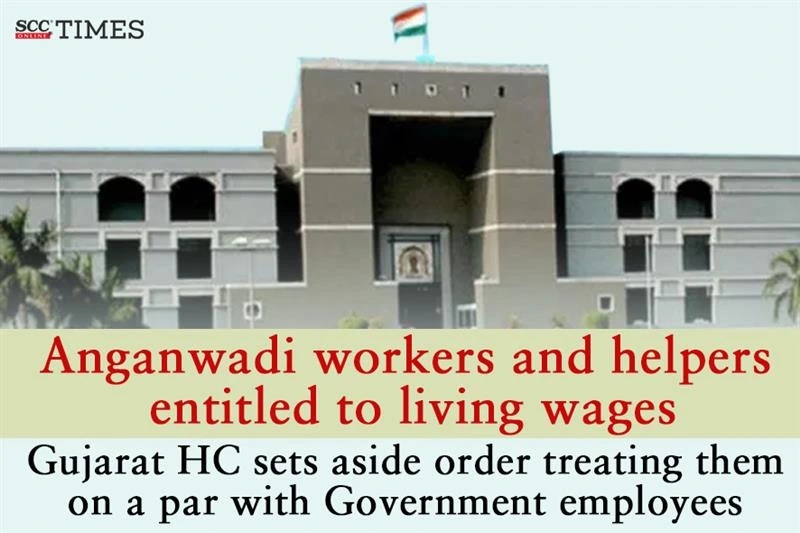
Key Legal Ruling on Anganwadi Workers’ Status and Compensation
The Gujarat High Court recently overturned a directive that equated Anganwadi Workers and Helpers with regular government employees, emphasizing the distinct recruitment processes and responsibilities of these roles. In a Letters Patent Appeal (LPA), the Division Bench, comprising Justice A.S. Supehia and Justice R.T. Vachhani, rejected the earlier order that mandated treating these workers as permanent civil servants. The court highlighted that Anganwadi Workers and Helpers are appointed under different statutory frameworks and lack the qualifications and recruitment procedures of regular civil posts. This decision underscores the importance of distinguishing between temporary and permanent roles in government service, particularly in the context of the Integrated Child Development Services (ICDS) scheme. The ruling also addressed the minimum wage entitlements, directing the state and central governments to provide living wages of Rs 24,800 and Rs 20,300 monthly, respectively, to Anganwadi Workers and Helpers. This marks a significant development in the legal recognition of these workers’ rights and the need for equitable compensation.
Background and Legal Context of the Case
The case originated from writ petitions filed by Anganwadi Workers and Helpers, who sought regularization of their service and equal pay to part-time government employees. They argued that their honorarium violated constitutional rights under Articles 14, 16, 21, and 23. A Single Judge initially ordered the government to treat these workers as permanent employees and formulate a regularization policy. However, the High Court’s Division Bench reviewed this decision, noting the reliance on the Maniben case, which had previously recognized Anganwadi Workers as statutory employees under the National Food Security Act. Despite this, the court emphasized that the recruitment process, qualifications, and nature of duties for Anganwadi Workers differ significantly from those of civil servants. The court’s rejection of the Single Judge’s order highlights the complexities of balancing statutory obligations with administrative feasibility in public service reform.
Analysis of Equal Pay and Legal Entitlements
The court’s analysis focused on the principle of ‘equal pay for equal work,’ which was deemed inapplicable due to the distinct nature of Anganwadi Workers’ roles. The bench clarified that unless these workers meet the qualifications and responsibilities of Class III and IV posts, they cannot be equated to regular government employees. This ruling reinforces the need for a nuanced approach to labor rights, ensuring that compensation reflects both the role’s demands and the legal framework governing its appointment. The court also addressed the living wage determination, emphasizing that the minimum wage should cover basic needs and reflect the workers’ contributions to public welfare. This decision sets a precedent for future cases involving similar labor disputes, highlighting the judiciary’s role in balancing statutory obligations with social equity.
Implications for Government Employment and Social Welfare
The ruling has significant implications for government employment policies and the welfare of Anganwadi Workers. By rejecting the equivalence of these roles with permanent civil servants, the court has clarified the administrative boundaries of public service roles, which is crucial for effective governance. The directive for living wages underscores the importance of recognizing these workers’ contributions to social welfare programs, ensuring they receive fair compensation for their critical role in child development and community services. This decision also highlights the need for policy reforms to address the disparities in pay and working conditions for temporary and permanent government employees, fostering a more equitable and sustainable public service framework.
Next Steps and Broader Legal Impact
Following the ruling, the Gujarat government is expected to implement the court’s directives on minimum wages and review its employment policies to align with the decision. The court’s emphasis on distinguishing between temporary and permanent roles may influence similar cases in other states, promoting a more consistent approach to labor rights. This case also underscores the importance of legal frameworks in addressing the challenges of public service delivery, ensuring that workers’ rights are protected while maintaining administrative efficiency. As the government works to comply with the court’s orders, the broader impact on labor laws and social welfare policies will likely be significant, setting a new standard for equitable compensation in public service roles.



